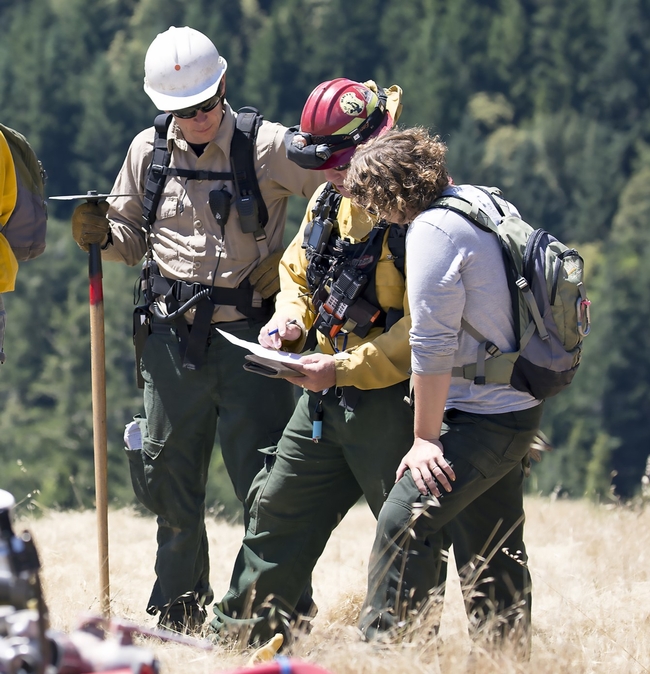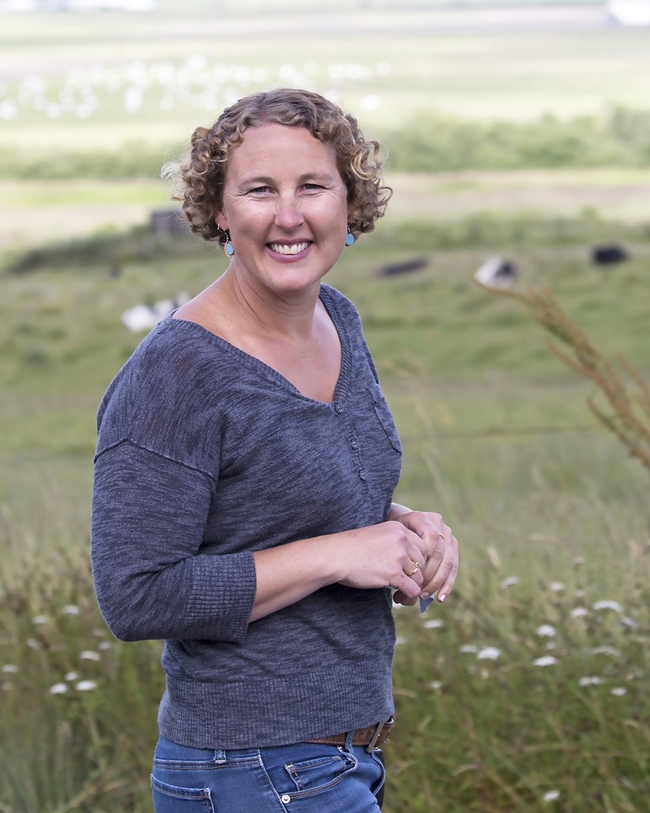Posts Tagged: ecology
Don't Miss This UC Davis Seminar by Ecology Researcher Andrew Corbett
Don't miss this UC Davis Department of Entomology and Nematology (ENT) seminar by ecologist Andrew Corbett, a research associate with ENT who is also highly skilled in simulation modeling and instructional design. Corbett will speak on...

Ecologist Andrew Corbett, who holds a doctorate in ecology (joint program with UC Davis and San Diego State University) will present a seminar at 4:10 p.m., Oct. 21 in 122 Briggs Hall, UC Davis. It also will be on Zoom.
Using Native Plants for Weed Control
One of the first steps in ecological restoration is often controlling invasive weeds, which can be a major barrier to native plant establishment. But what happens after restoration is complete? At most sites, weed pressure is an ongoing challenge that...
Lawn-pocalypse! Surviving Drought
Ah, summer! The season of sunburns, pool parties, and… lawn droughts. If your once lush, green carpet now looks like a crunchy brown doormat, you're not alone. Let's dive into why your yard is staging a dramatic death scene and what you can do to...

Bermuda grass and weeds overtaking drought stressed turf grass.
Congratulations, Microbiologist Shawn Christensen: Best Dissertation
Congratulations to UC Davis outstanding scientist Shawn Christensen, a doctoral candidate and microbiologist who was just selected the 2024 recipient of the Merton Love Ecology and Dissertation Award, an annual award that celebrates the university's...

Close-up of Anthophora bomboides stanfordiana building a nest on the sand cliffs of Bodega Head. This is the solitary bee that UC Davis doctoral candidate Shawn Christensen studies. (Photo by Kathy Keatley Garvey)

The sand cliffs of Bodega Head are home to digger bees--bumble bee mimics--Anthophora bomboides stanfordiana. (Photo by Kathy Keatley Garvey)
More than 800 wildland fire professionals gather for international conference in Monterey
UC ANR among sponsors of 10th International Fire Ecology and Management Congress
Scientists, land managers, educators and students from a variety of organizations worldwide will gather from Dec. 4-8 in Monterey, California for the 10th International Fire Ecology and Management Congress. The conference is hosted by the Association for Fire Ecology in cooperation with the California Fire Science Consortium.
Major sponsors include University of California Agriculture and Natural Resources, with the Esselen Tribe of Monterey County as the host tribe. There are more than 25 additional sponsors and exhibitors representing federal and state agencies, universities, nonprofits, tribal organizations and companies.
“As we know from recent fire events across the globe, wildland fire issues are complex and there is an urgent need to work together in new and creative ways to address wildfire-related challenges,” said Lenya Quinn-Davidson, Fire Network director at UC ANR. “We need to identify opportunities to promote fire-resilient communities and environments.”
This event will include workshops, field trips and three full days of presentations, discussion groups and networking opportunities around the theme, “Igniting Connections: Celebrating Our Fire Family Across Generations, Cultures and Disciplines.”
On Monday, Dec. 4, the Fire Congress will kick off with 10 workshops and trainings, offering opportunities for participants to build and apply new skills in modeling, collaborative planning, risk management and more. From Tuesday morning to Thursday afternoon, the Fire Congress program is filled with innovative plenary sessions, more than 500 oral and poster presentations, and opportunities for sharing information through discussion groups and meetings.
For the first time, the conference will also feature an Indigenous Culture and Art Showcase, taking place on Tuesday, Dec. 5. The entire event concludes on Friday, Dec. 8 with field trips to explore nearby natural areas to see how the concepts discussed at the Fire Congress are being applied in California.
Participants will be encouraged to share and explore proactive solutions that apply Western science and Indigenous knowledge to meet desired management and societal outcomes.
More conference information at http://afefirecongress.org.
MEDIA CONTACTS
Lenya Quinn-Davidson (University of California Agriculture and Natural Resources): lquinndavidson@ucanr.edu, 707-272-0637
Morgan Varner (Tall Timbers Research Station): mvarner@talltimbers.org, 707-845-1659
Jeffrey Kane (Cal Poly Humboldt): Jeffrey.Kane@humboldt.edu, 928-637-4128


